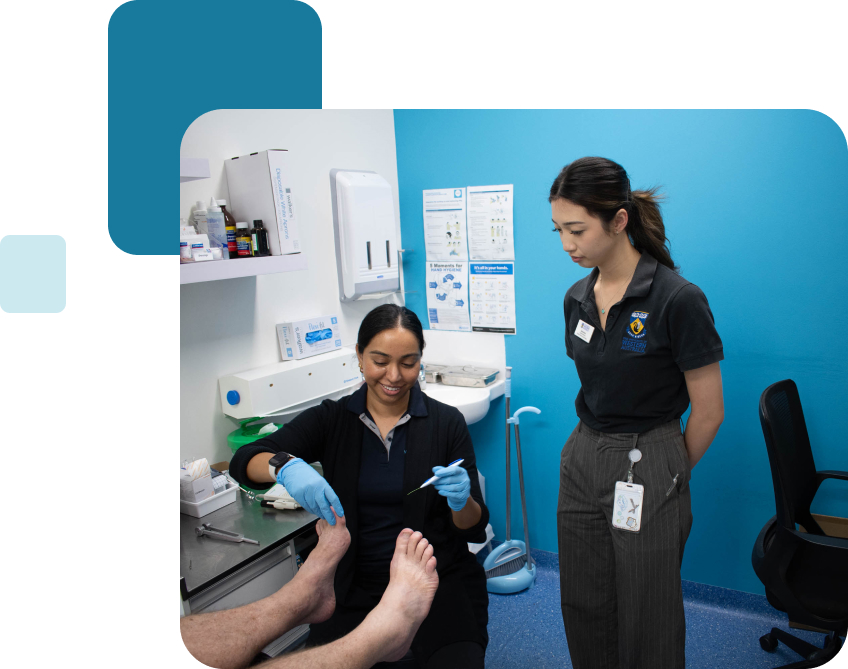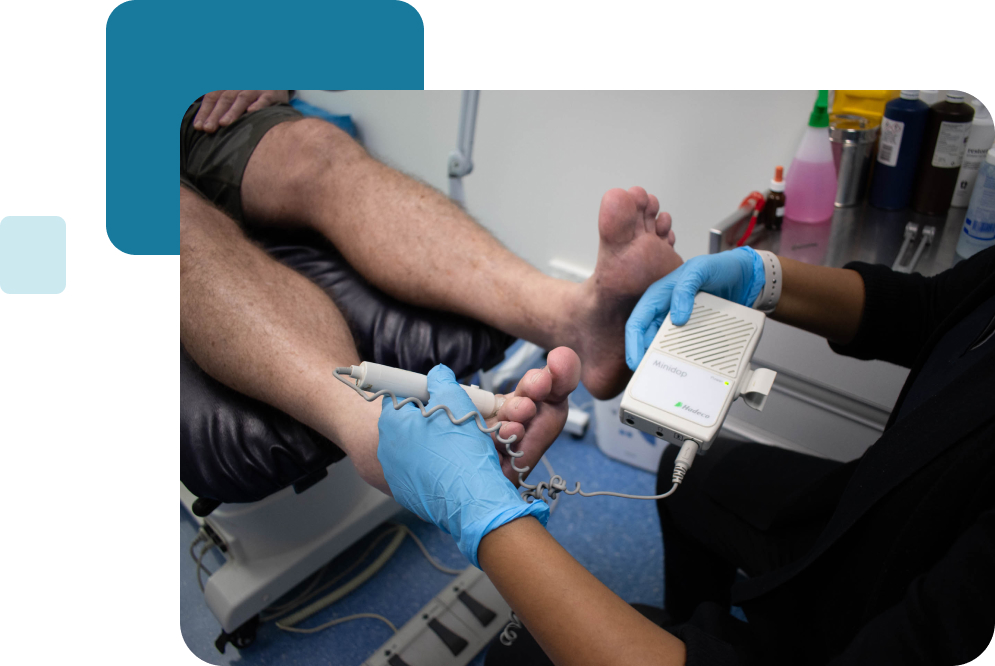99/103 Harris St, Bicton WA 6157, Australia
.png)
Pain under your heel or arch, especially when taking your first steps in the morning is a common problem known as plantar foot pain. It can affect your comfort when walking, running, or standing for long periods.
Our physiotherapists and podiatrists work together to assess the cause of your pain and help you move comfortably again through safe, evidence-based care.
Sharp or aching pain under the heel or arch
Pain when taking your first steps in the morning
Discomfort after standing or walking for long periods
Stiffness after rest or exercise
Pain that improves slightly with gentle movement
If you’re unsure whether your pain is related to plantar fasciitis or something else, our team can help assess and guide you appropriately.

Our physiotherapists and podiatrists work together to address the root causes of plantar foot pain.
Depending on your assessment, your care plan may include:
Physiotherapy
Gentle stretching and strengthening exercises
Soft tissue techniques to reduce tension
Gait and posture assessment
Advice on activity modification and recovery
Education on load management and self-care
Podiatry
Foot and gait assessment
Footwear advice
Orthotic or insole recommendations (if appropriate)
Guidance for long-term foot support and comfort
Our goal is to help you understand your condition, manage symptoms effectively, and prevent future flare-ups.
Comprehensive assessment – Your physiotherapist or podiatrist will discuss your symptoms, activity level, and footwear.
Movement and gait review – We’ll observe how you stand, walk, and move.
Personalised plan – You’ll receive clear advice, targeted exercises, and practical steps you can take at home.
Collaborative care – If needed, physiotherapy and podiatry may work together for the best outcome.

What can make plantar foot pain worse?
Spending long periods on hard surfaces, wearing unsupportive footwear, or increasing activity levels too quickly can aggravate symptoms. Sudden changes in training load or standing jobs can also contribute to discomfort.
Is plantar foot pain common in active people?
Yes. It’s frequently seen in people who run, walk long distances, or start new exercise programs. It can also affect people who spend much of the day on their feet or wear shoes without adequate arch support.
Can I prevent plantar foot pain from coming back?
Maintaining calf flexibility, wearing supportive shoes, and gradually increasing activity levels can help reduce recurrence. Regular strengthening and stretching as advised by your physiotherapist or podiatrist also support long-term foot health.
Does plantar foot pain only affect the heel?
Not always. Some people feel discomfort through the arch or front of the heel. The exact location of pain often depends on which part of the plantar fascia or surrounding muscles are irritated.
Can tight calves or Achilles issues cause foot pain?
Yes. Tightness in the calf muscles or Achilles tendon can increase tension through the plantar fascia, contributing to discomfort. Your clinician may include stretching and mobility strategies as part of your care.
Is rest the best solution for plantar foot pain?
Complete rest is rarely necessary. Gentle, modified activity is usually recommended to maintain mobility without overloading the foot. Your clinician can guide you on how to balance movement and recovery.
Do I need new shoes if I have plantar foot pain?
Supportive, well-fitted footwear can make a significant difference. Shoes with good arch support and cushioning help reduce strain on the heel and arch. Your podiatrist can provide advice tailored to your foot type and activity.
When should I see a health professional?
You should book an appointment if pain has lasted longer than two weeks, keeps returning, or affects daily activities. Early advice helps prevent the issue from becoming more persistent.
